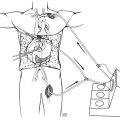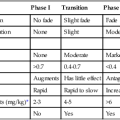
Amid rising mental health concerns among America’s youth, Acadia Healthcare, the nation’s largest stand-alone behavioral health provider, at its affiliated hospitals have partnered with The Jason Foundation to address the growing crisis of youth suicide. The collaboration aims to merge health care resources with preventative education in communities across the United States.
The Youth Suicide Crisis
Youth suicide has reached alarming levels in recent years, becoming the second leading cause of death for individuals 18 and younger. The Centers for Disease Control and Prevention’s Youth Risk Behavior Survey Data Summary & Trends Report for 2013-2023 found that in 2023, 40% of all high school students reported experiencing “persistent feelings of sadness or hopelessness,” while 20% seriously considered attempting suicide, and 9% made one or more suicide attempts.
Female students report significantly higher rates of persistent sadness or hopelessness (53%) compared to male students and are more likely to seriously consider suicide. Students who identify as LGBTQ+ are more than three times as likely to have seriously considered suicide compared to their cisgender, heterosexual peers.
The partnership between Acadia Healthcare, its affiliated hospitals, and The Jason Foundation aims to address these statistics by establishing community resource centers within treatment facilities nationwide. These centers are meant to serve as hubs for educational materials and programming designed for health care staff, patients, families, and the broader community. The partnership emphasizes prevention through education and awareness, targeting the problem before it reaches crisis levels.
About Acadia and The Jason Foundation
The Jason Foundation was established as an educational organization dedicated specifically to preventing youth suicide through programs that equip young people, educators, youth workers, and parents with tools to identify and assist at-risk youth. The foundation’s approach centers on what they call a “Triangle of Prevention,” which connects students, parents, and teachers in a coordinated effort to recognize warning signs and secure professional help quickly.
According to the foundation’s research, 80% of teens who attempted to die by suicide showed clear warning signs. These signs can include depression, sudden lack of interest in previously enjoyed activities, changes in eating habits, or declining academic performance. The partnership with Acadia creates multiple touchpoints where these warning signs might be recognized and addressed.
For Acadia Healthcare and its affiliated 260 behavioral health care facilities, the partnership extends their reach beyond traditional treatment settings. While Acadia subsidiaries serve approximately 80,000 patients daily, the JFI partnership allows them to engage in preventative work that potentially reaches many more young people before they require clinical intervention.
‘Compassionate Care That Improves Lives’
The Jason Foundation’s programming within Acadia-affiliated facilities includes several key initiatives designed to address different aspects of suicide prevention. The JFI’s Coaches Assistance Program, for example, focuses on training coaches to recognize suicide risk signs in young athletes — an innovative approach that builds on existing relationships of trust that many young people have with their coaches. Additionally, JFI has developed specialized curricula for parents and educators, helping them identify when a young person is in emotional distress and might need professional support.
The foundation has also created the “A Friend Asks” mobile app, which provides young people with immediate access to resources that can help them assist friends who might be contemplating suicide.
The partnership comes at a time when Acadia Healthcare’s subsidiaries have expanded behavioral health services nationwide. Acadia-affiliated facilities include acute inpatient psychiatric hospitals, specialty treatment facilities, residential treatment centers, and outpatient clinics — creating multiple settings where The Jason Foundation’s resources can be implemented.
Chris Hunter, Acadia Healthcare CEO, has emphasized the company’s mission “to provide compassionate care that improves lives, inspires hope, and elevates communities.” The partnership with The Jason Foundation furthers this mission by extending Acadia’s impact beyond direct clinical care into community education and prevention.
According to the nonprofit Mental Health America, of over 28 million Americans with mental illness, roughly 54% receive no mental health treatment.
Against this backdrop of systemic gaps in care, prevention initiatives like The Jason Foundation take on added importance. While Acadia and its network of affiliated facilities work to address the bed shortage through facility expansion, adding approximately 1,300 new beds in 2024 alone, preventative education offers a parallel strategy to reduce the demand for acute services by identifying and addressing concerns before they reach crisis levels.
From a public health perspective, the Acadia-JFI partnership exemplifies a growing recognition that addressing the youth mental health crisis requires a multifaceted approach extending beyond traditional clinical settings. Bringing educational resources directly into health care environments and expanding those resources outward to schools, families, and communities creates multiple layers of protection for vulnerable young people.
And for health care professionals working within Acadia-affiliated facilities, the partnership provides additional tools to broaden their impact beyond direct patient care. The educational materials and training programs offered through JFI resource centers enable clinicians and staff to participate in broader prevention efforts, potentially addressing a common source of burnout in mental health professions — the frustration of treating crises that might have been prevented with earlier intervention.




